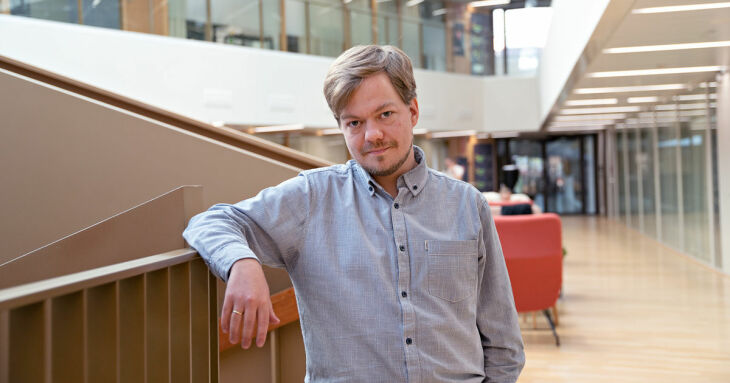What is the role of businesses in promoting peace?
This question pertains to the fundamental issue of what the purpose of business is. Let's start with the old-school answer: According to economist Milton Friedman and others, the purpose of business is profit maximization. However, I argue that this is the biggest misunderstanding of the last 100-200 years. Philosophers such as Immanuel Kant and Charles de Montesquieu, as well as the “Father of Economics” Adam Smith, have for centuries recognized the role of business, or trade and international cooperation in general, in creating stability and peace in society. More recently, in the last 10-20 years, empirical studies such as those by Business Ethics scholar Timothy Fort (worth noting is also the Peace Data Standard by the Peace Innovation Lab at Stanford University), have shown that ethical business through core business activities actually fosters and generates peace. However, these studies were often limited to a definition of peace as the absence of war.
My contribution is to take this fact – that ethical products and services foster peace – and apply it to the expanded concept of peace, as defined in the previous question, and to the increasing collective awareness that the purpose of business is to create positive impact for society. The result is truly mind-blowing: If the purpose of business is to create positive impact in society, and if creating positive impact means, in substance, fostering peace, then the purpose of business in society is to foster peace. In other words, I propose an entirely new paradigm, or mindset, in which business is seen as a force for peace through core business activities, such as selling ethical products and services. Profitability is still important but not the goal or purpose. Rather, profits are only a requirement, or a corroborating enabler, but not the essence, nor the raison d’être, of business.
As Edward Freeman, known for his stakeholder theory, eloquently states in a recent webinar: ‘I need red blood cells to live, but the purpose of my life is not to make red blood cells, and that would be a foolish conclusion to make. Business must have profits to live […] but it doesn’t follow that making as much money as you can or maximizing profits is the purpose of business.’
What concrete actions can businesses do to promote peace?
Companies can contribute to non-war and weak peace in many ways, for example by:
- recognizing, analyzing, and assessing the impact business has on a specific conflict and thus developing proper reactive measures while being conflict-sensitive
- refraining from causing violence, for example, through self-regulation and certification means
- hiring former combatants or members of warring parties and by valuing diversity in hiring policies
- instilling clear standards and policies for example against bribery and corruption
- engaging in an honest and respectful dialog with all relevant stakeholders
- investing in the reconstruction and stability of democratic society; and
- using networks and relationships throughout all levels of society to inspire and lead for change.
Concrete activities that companies can do to foster strong peace include:
- producing and selling (ethical) products and services that have some positive effects
- respecting and supporting human rights
- promoting gender equality, both internally and in society
- taking responsibility for the environment
- creating value for all stakeholders
- contributing to the economic development of an impoverished area
- engaging in Bottom or Base of Pyramid innovation and other activities that alleviate poverty
- educating employees as well as members of the communities in which a company operates
- fostering participatory governance models; and
- being concerned for the development of society.
Fostering holistic peace requires:
- asking what is one’s personal, and an organization’s, higher purpose
- transcending (but not ignoring) self-interest for a better future towards a greater good
- showing moral excellence in leadership, which is both visionary and truly transformational
- recognizing the interdependence of all human beings
- leading from the future as it emerges
- nurturing a global consciousness which fosters compassion and collaboration.
What can we as individuals do to promote peace?
You can study business! As I have explained above, there is a tight connection between ethical businesses and promoting peace, so studying business and working within responsible businesses is a great way for everyone to enhance peace.
As the old saying goes, if you want to change the world, change yourself first. This is 100% true also for promoting peace in the world. The key is to understand that peace is a highly relevant topic even in a country like Finland. Think of all the problems we still have, albeit less than in other countries: unemployment, gender inequality, even poverty. In other words, even though we tend to be leaders in all kinds of country rankings, we still have a long way to go in terms of peace. Also, it is crucial to remember that outer peace is intrinsically connected to inner peace. Therefore, a mindfulness practice such as meditation helps to learn to react more peacefully to the conflicts of daily life.
Please note that peace is not the absence of conflict. Rather, the academic discipline of Peace Studies teaches how to transform the initially negative energy of a conflict into positive energy. A good starting point, in addition to a meditation practice, is to read the book Nonviolent Communication: A Language of Life by Marshall Rosenberg. Further, we can all ask ourselves these critical questions:
- In your working life, why was the organization where you work founded?
- What problem does the entrepreneurial spirit of your organization address in society?
- What vision is promoted by the values that the organization embodies?
- Could this mission or vision be connected, or elevated, to one of the stages of peace?
Having identified the purpose of your organization, does it inspire leaving a legacy to future generations? This entails adopting a long-term mindset.
Does your work, directly or indirectly, address some human needs? Why is the world a better place because of you? Can this benefit be scaled?
How would you defend your company’s ethical stance to Mother Theresa, or any other religious or non-religious moral authority of your choice? Does your moral authority invite you to climb up the ladder of morality? This entails learning from past mistakes and, from now on, adopting a zero-tolerance for unethical behavior. Can this, organically and instrumentally, improve your organization’s reputation in the long run?
Does your organization care for the communities in which it operates, for the environment, and for other stakeholders? What would it entail to truly care? Adopting a win-win mindset, what value could your organization bring to these stakeholders?
If some aspects of your work could significantly improve the living standards of others, would your organization pursue the opportunity? What if only small changes were necessary to make the product or service useful and beneficial for underprivileged communities? Which of your products or services have the greatest potential to tap into new markets where it can create positive impact for underprivileged communities? Are there logical starting points for marrying profitability with societal gain?
Have you realized how much knowledge and creativity rests unused in lower ranks of your organizational hierarchy? Do you enable, allow, and trust creativity to flourish in "dark corners" of your organization? Does the physical architecture of your office inspire and support dialog and consensus where and when useful but also silent work? Does your organization’s organizational culture value every human being equally?
Does your organization's leadership understand and internalize all points mentioned in this list above? If yes, do they help others learn about the benefits of following the principles of corporate leadership for peace?
The International Day of Peace is observed around the world each year on the 21st of September. The day was established in 1981 by the United Nations General Assembly.
More information:
Doctoral researcher Tilman Bauer
Aalto University School of Business, Department of Management Studies
[email protected]
















